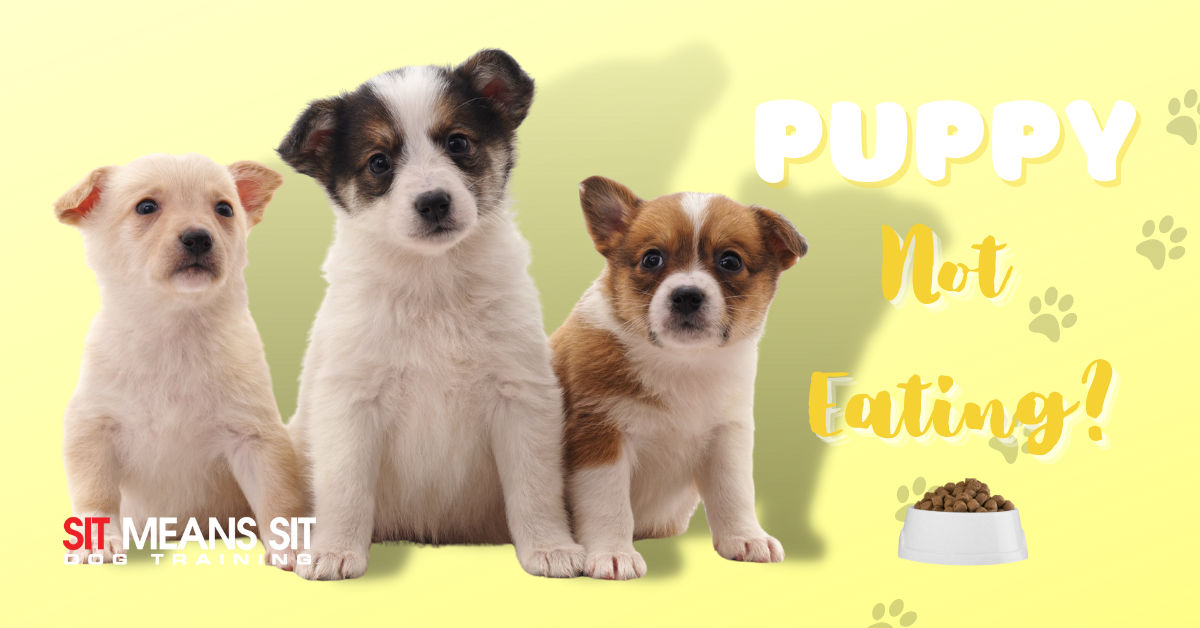
Why Isn’t My Puppy Eating?
Puppies can be a whirlwind tornado and destroy everything in their path, including food. So it may be worrisome if you notice your pup hasn’t eaten in a few days. While skipping a meal is normal for puppies, more than 2-3 should be concerning.
Most pup-parents judge their dog’s eating habits based on the serving size labeled on their food packaging. This is made by manufacturers and is just an average for dogs. Dog owners often mistake this for not eating or a loss of appetite. But it’s okay if your dog doesn’t eat all of the food you put out for them as dogs usually only eat about 60-70% of what’s labeled. It’s important to decide whether your dog just skipped a meal, lost its appetite, or is experiencing anorexic behaviors. Anorexia in dogs is where your pup hasn’t eaten in several days and is needing the help of a vet.
Here are some of the main causes of skipping days of meals for dogs:
Illness
Just like humans, illness in dogs can bring on a change in appetite. It is important to track any symptoms that come along with the loss of appetite to decide if the anorexic behavior is illness-related. Taking your pup to the vet ASAP is best in this scenario, especially if you indicate illness symptoms like lethargy, whimpering, runny nose and eyes.
Diseases that decrease appetites in dogs include cancer, infections, kidney failure, and liver problems. Puppies will also not want to eat if they have pain or conditions that increase inflammation.
Recently Vaccinated
Vaccinations can be harsh on your pup, so it’s not abnormal if your dog has a loss of appetite. But it’s important to recognize if they lose their appetite 1-2 days after getting vaccinated. Past that stage should be more cause for concern due to the shortness of appetite loss most vaccines will have on puppies.
Oral Health
Puppies dealing with teething are likely to face a loss in appetite. When they experience pain or inflammation, they will want to not eat. But it’s also possible that a loose or broken tooth, or even gingivitis, may be the cause of not eating. A visit to the vet will tell you how to help your pup through this.
Travel
Traveling and being in unfamiliar places can cause a lot of stress on a young pup. Anxiety or motion sickness will reduce their eagerness to eat. Try creating a positive and calming environment for your pup to help them ease into the situation they’re in.
Behavioral or Psychological Issues
Some puppies are just born picky eaters and go to extreme lengths to let you know they don’t like what you’re feeding them. Other pups can be depressed or under extreme distress that makes them shy away from eating. So if your dog hasn’t been diagnosed with any underlying medical issue, then they may be facing behavior or psychological factors that cause their lack of appetite.
How Can I Get My Dog To Eat?
Treatment for getting your puppy to eat should always be talked about with your vet. It’s extremely important to make sure that there’s nothing wrong with your pup before trying new routines. Your vet may suggest a therapeutic diet for your puppy, but some dogs have to be placed on a liquid-based diet if they continue to refuse meals. This is administered by a syringe and will include a nutrient-dense supplement.
Behavioral Eating Habits
If your dog won’t eat based on behavior, here are a few suggestions to try out, with the approval from your vet:
Wet Puppy Food or Moisten Their Kibble
A moist or soft form of dog food can be a great choice for pups who have dental problems, was ill, or are teething. The softness and smell of wet food will entice your puppy to eat their food.
Home-Cooked Meals
If your dog is extremely picky, you may want to try cooking them a home-cooked meal. This should always be advised by your vet and not include any toxic foods. Try out a slice of lean meat and steamed carrots!
Add Peanut Butter
Peanut butter is a staple for almost every dog. Adding it to your pup’s meal will likely entice them to eat their food and become a positive reward for doing so!
